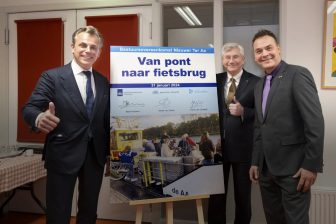ADB calls for change in water management in Asia
ADB President Calls for Fundamental Change in Water Management in Asia and Pacific
MANILA, PHILIPPINES – Asian Development Bank (ADB) President Haruhiko Kuroda 2007-12-04 called on all countries in the Asia and Pacific region to make a fundamental change in the way they manage water to build a sustainable future.
“We need to change the way we think about water – change to a broader perspective that considers all facets of economic and social development,” said Mr. Kuroda in his address to the first Asia-Pacific Water Summit.
ADB regards better water management as a crucial challenge for the Asia and Pacific region, where more than 600 million people lack access to safe drinking water and 2 billion people have inadequate, or are without, sanitation facilities.
Energy, food, environment and industrial policies are all intimately linked to water. Policies in all these areas will similarly be influenced by external forces like demographic transitions, advances in technology and communication, globalization and free trade.
“All of these factors must be considered holistically in order to build a sustainable future toward and beyond Millennium Development Goals,” Mr. Kuroda said.
Calling for strong political will and practical, forward-looking actions, Mr. Kuroda stressed the need to move water higher up on the local, national, regional and international policy agendas.
He noted that most of the region’s water problems are solvable through more appropriate planning and management. Specific solutions will vary according to each country’s particular circumstances. However, Mr. Kuroda said, some fundamentals can apply across the board: reliable, accessible data on water; related social, economic and environmental factors; strong partnerships among governments, the private sector, civil society and others; water quality management; and capacity building for new skills, new approaches and new mindsets.
ADB is committed to helping its developing member countries address their water challenges with the vision of water for all in the Asia and Pacific region. ADB expects to sharply increase its investments in the water sector through its Water Financing Program, which directs funds, reforms and capacity development programs at rural communities, cities and river basins. As part of ADB’s contribution to the Summit, ADB published the Asia Water Development Outlook on November 29 – a report that assesses the region’s current and future water problems and proposes the policy measures that can help solve them.
U las zojuist één van de gratis premium artikelen
Onbeperkt lezen? Profiteer nu van de introductieaanbieding voor € 10,- per maand.
Bent u al abonnee?



